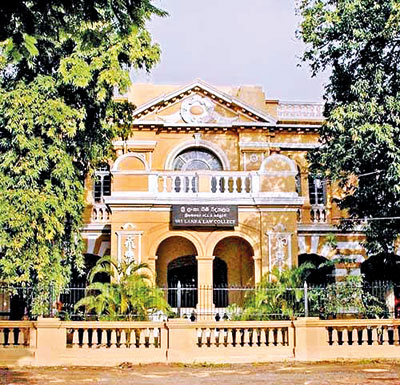News
Parliamentarian stands firm in his decision to support Law College exams in English
View(s):- Says talented young people will suffer as major law books and latest developments
in the legal field would not be in local languages
The Parliament’s move to stop a decision by Sri Lanka Law College to conduct examinations only in English will end up in killing the talent of gifted young people who can contribute to the country, the lone MP to vote in support of the College’s decision told the Sunday Times.

Galle District Parliamentarian Chandima Weerakkody
Sri Lanka Podujana Peramuna (SLPP) Galle District Parliamentarian Chandima Weerakkody, who now sits as an independent member in Parliament, was the one dissenting vote as Parliament voted 113 to 1 on March 21 to deny approval to new rules by the Council of Legal Education to conduct the Law College exams only in English.
Explaining his decision, Mr Weerakkody said he was taking into account the interests of the litigant. All major law books and the latest developments in the legal field were in English, he pointed out. As such, if one side retains a lawyer fluent in English and the other someone who was not, it was the lawyer fluent in English who had the advantage as he or she would be able to immediately search for the points required and submit their submissions, he said.
The member dismissed as “stupid” the arguement that those who had studied in Sinhala and Tamil would be at a disadvantage by the rule to conduct exams only in English. For one, the Law College had given three years notice to students. Even if the decision had been implemented this month, first year students would have had to sit for only three subjects in English, while second years would have had five subjects. It was only the final year students who would have had to sit all their exams in English.
Those who had barely passed Grade 8 learned Korean or Japanese within three months to qualify for jobs in those countries, while students who studied in Russia and China learned the language within a year. As such, Mr Weerakkody questioned how students who were exposed to English far more, would not be able to learn it.
“I studied at a Sinhala Buddhist school, but I learned to study in English when I went to Law College,” he said.
He said Law College authorities had also clearly conveyed to students who would sit for law exams in English, that they were not expecting fluency. 
In the end, not just the litigant, but gifted young lawyers would suffer, as those with the knowledge of English would be far more employable than those who were only proficient in their native languages, the member said.
“Law students might be cursing me now, but they will change their opinion within a short time after taking oaths as lawyers,” he said.
The best way to say that you found the home of your dreams is by finding it on Hitad.lk. We have listings for apartments for sale or rent in Sri Lanka, no matter what locale you're looking for! Whether you live in Colombo, Galle, Kandy, Matara, Jaffna and more - we've got them all!

